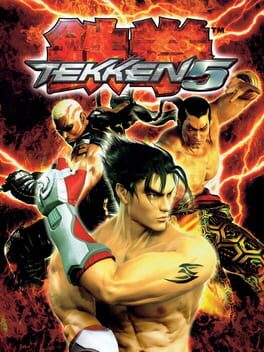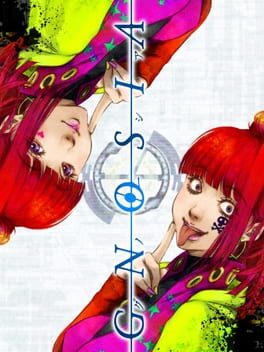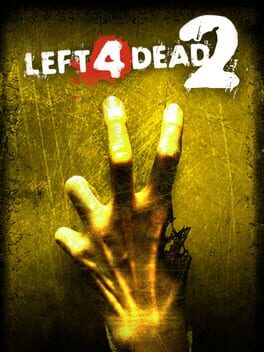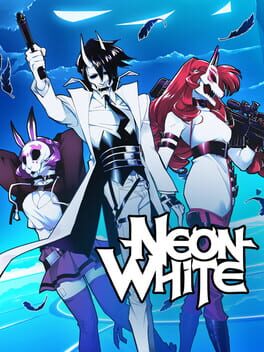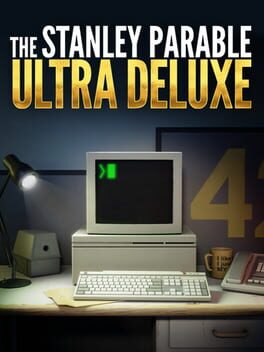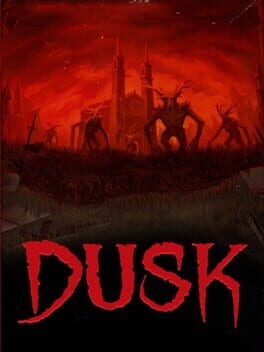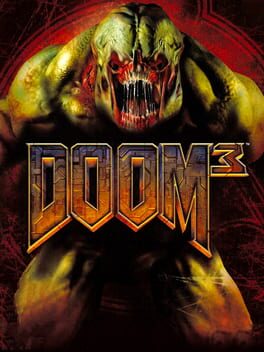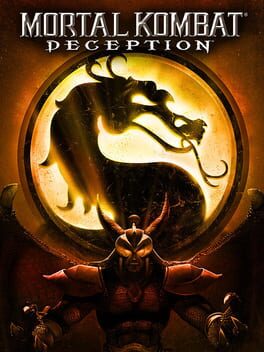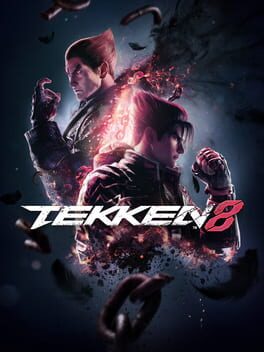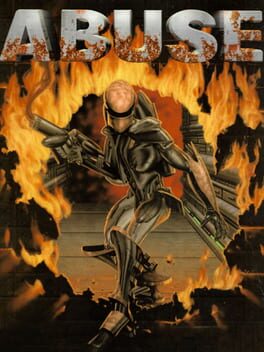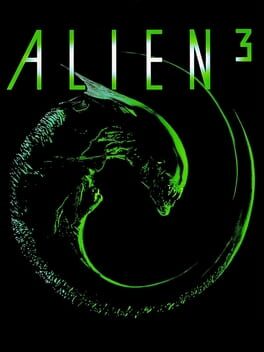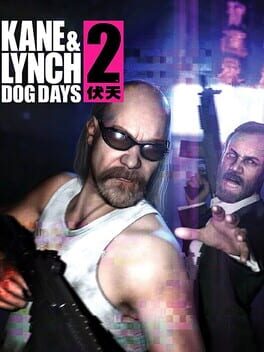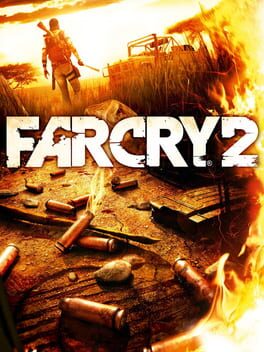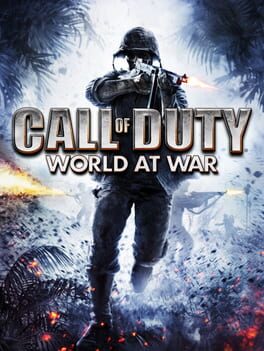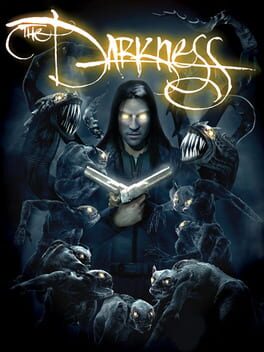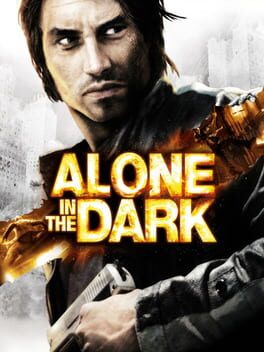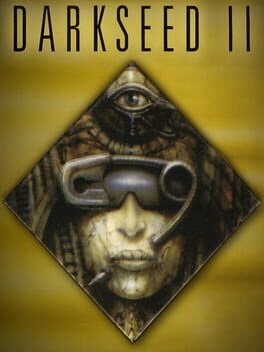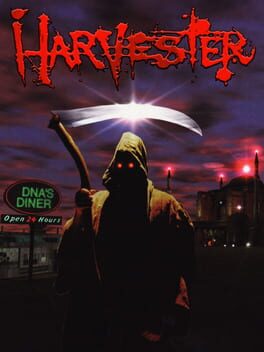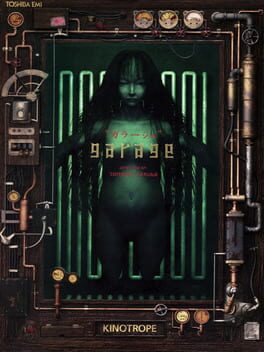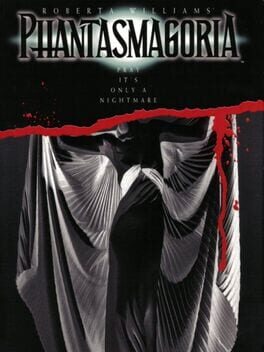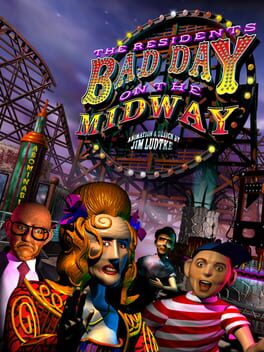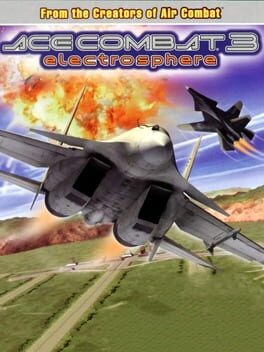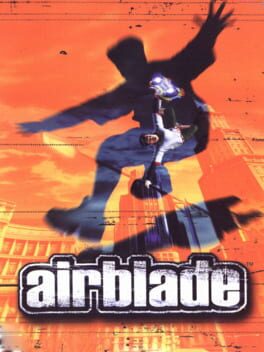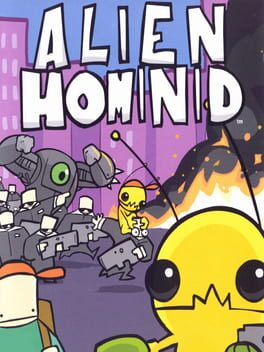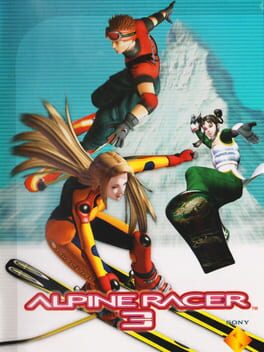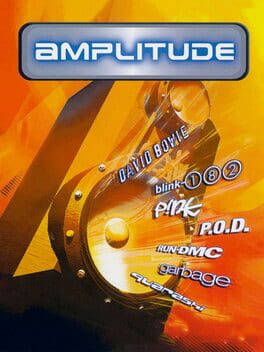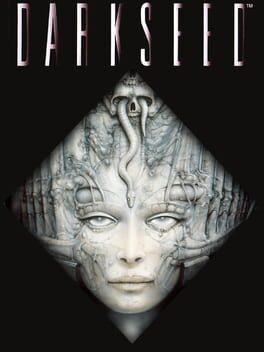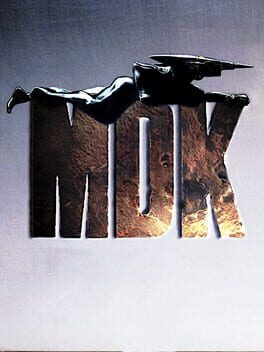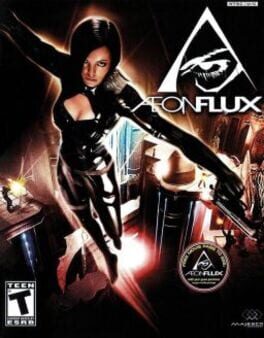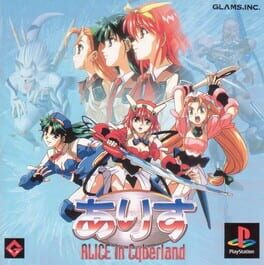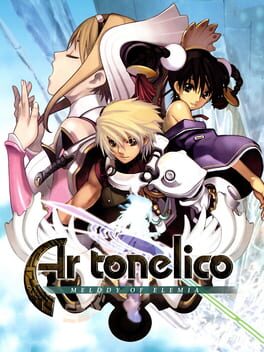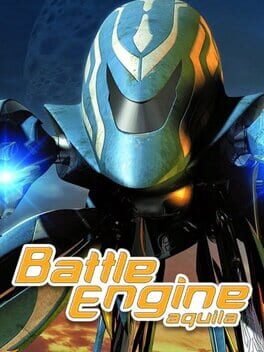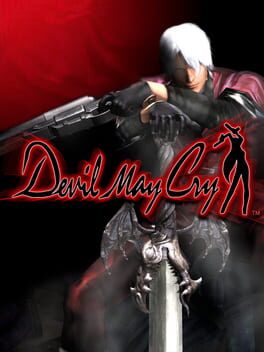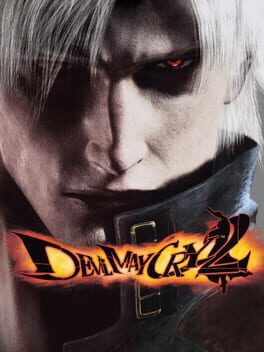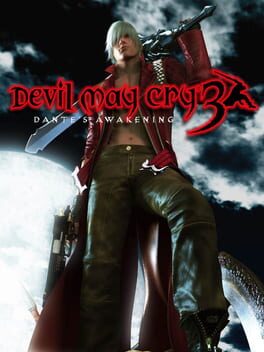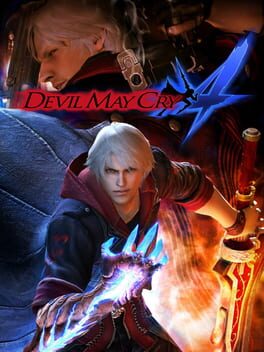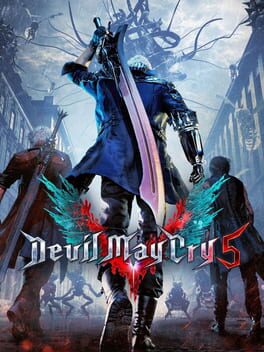Bruh_Moment_7
347 reviews liked by Bruh_Moment_7
Tekken 5
2004
A short while ago I read that article about Naughty Dog and how they literally suppress use of the word “fun” within the studio. I think it paints a picture of a company so up its own ass, so out of touch with the medium they’re working in, and I think it stands in stark contrast to a game like Tekken, which is so unabashedly a video game above all else. It’s combat is refined and technical, yet accessible enough that a new player can jump in and jazz up combos on the spot. It’s got a full roster with all my favourites from Tekken 3 back. It’s full of customization options, side modes like the arcade mode, Devil Within (which isn’t as good as Tekken 3’s Tekken Force, but it’s still a fun little bonus) and it even comes with the first three Tekken games. It’s so full of content, creativity and fun-loving character, and I love it.
It was also neat of them to give the final boss a move that straight up just wins him the round, fucking Jinpachi with your fuckass stun and your fireball.
It was also neat of them to give the final boss a move that straight up just wins him the round, fucking Jinpachi with your fuckass stun and your fireball.
Tekken 5
2004
Hey uh....Mr. Jinpachi, could you pretty pwease not use that move that wins the game? I think that'd be really nice of you...
"Okay."
stuns me in place for five hours and proceeds to shoot me in the face with a fireball
---
Imagine keeping a human-shaped natural disaster in your basement, that's what Heihachi did apparently. Then Heihachi fake died, and then his dad who's been dead gets resurrected by an unexplained devil that isn't actually anything related to the devil gene despite being addressed as "devil" constantly, at least according to Harada, because he ain't pushing Tekken 5 anymore. Feel bad for him, Jinpachi is the only unambiguously good Mishima family member, and in his debut game you have to put him down otherwise his bout of food poisoning will destroy civilization after it ascends past making a rad stage to fight him in.
He's not subtle or an emotional cinematic masterpiece in fighting game boss form like T2 Devil Kazuya, he's a seven foot tall slab of aged beef that has a literal "I win" move at his disposal. Perhaps it plays into his inner conflict with his Not Devil gene, where he's struggling to not use his "I win" move against you, because he actually wants to lose and not just hit you with his "I win" move and kill you with his fireball attack right afterwards. He could easily play to win, but that's against his wishes. A man of honor, until he isn't. A true being of chaos.....
I don't have much else to say about Tekken 5, but it's pretty cool they included the arcade versions of the first three games with the PS2 release, as well as the one and only re-release of the original arcade version of StarBlade in North America that isn't on a discontinued mobile platform or cut down to FMV form for early CD-based consoles, suffice to say I booted up Tekken 5 after playing StarBlade Alpha a while back just to compare. Strange how that ended up happening. A nice little way to celebrate a decade of Tekken two decades ago. adjusts bandages, because I'm actually an ancient mummy
Jinpachi loved StarBlade, that's why it was in here. RIP old man. Hopefully Tag 3 comes in 2033 so I can use you again.
"Okay."
stuns me in place for five hours and proceeds to shoot me in the face with a fireball
---
Imagine keeping a human-shaped natural disaster in your basement, that's what Heihachi did apparently. Then Heihachi fake died, and then his dad who's been dead gets resurrected by an unexplained devil that isn't actually anything related to the devil gene despite being addressed as "devil" constantly, at least according to Harada, because he ain't pushing Tekken 5 anymore. Feel bad for him, Jinpachi is the only unambiguously good Mishima family member, and in his debut game you have to put him down otherwise his bout of food poisoning will destroy civilization after it ascends past making a rad stage to fight him in.
He's not subtle or an emotional cinematic masterpiece in fighting game boss form like T2 Devil Kazuya, he's a seven foot tall slab of aged beef that has a literal "I win" move at his disposal. Perhaps it plays into his inner conflict with his Not Devil gene, where he's struggling to not use his "I win" move against you, because he actually wants to lose and not just hit you with his "I win" move and kill you with his fireball attack right afterwards. He could easily play to win, but that's against his wishes. A man of honor, until he isn't. A true being of chaos.....
I don't have much else to say about Tekken 5, but it's pretty cool they included the arcade versions of the first three games with the PS2 release, as well as the one and only re-release of the original arcade version of StarBlade in North America that isn't on a discontinued mobile platform or cut down to FMV form for early CD-based consoles, suffice to say I booted up Tekken 5 after playing StarBlade Alpha a while back just to compare. Strange how that ended up happening. A nice little way to celebrate a decade of Tekken two decades ago. adjusts bandages, because I'm actually an ancient mummy
Jinpachi loved StarBlade, that's why it was in here. RIP old man. Hopefully Tag 3 comes in 2033 so I can use you again.
Gnosia
2019
I usually wait a few days before reviewing a game to let it settle in my mind and reach a more objective emotional distance, but this game has gotten me heated enough to where I had to capture it on paper. Specifically, it’s because this might be one of the worst designed games I’ve ever played.
Gnosia is a hybrid between a visual novel and a social deduction game, where you’re on a spaceship with 14 other people who may be sneaky aliens who want to kill everyone. A discussion happens each day, the humans decide who to put into cold sleep, the aliens decide who they want to kill, and the humans win when all the aliens are sleeping, or the aliens win when they’re at least 50% of the crew. It’s a well-tested design for a party game, but remember, this is a single-player experience. You’re playing against AI whose emotions you can’t read, and whose personalities only come out through a very small selection of dialog lines for each situation. Instead, the socializing that forms the core of the design is simulated by random skill checks: each AI character has a set of stats that are rolled whenever they tell lies, which are then rolled against perception stats. At the end of each round, you get XP to level up your own stats, and the game begins again. And again. And again. And again and again and again. To finish the game, it took me one-hundred and sixty-three rounds of playing the same game over… and over… and over again. The reason why is because you can only truly complete the game if you’ve seen all the character events, which randomly happen between nights depending on unspoken criteria like who’s alive, who has which roles, who trusts who, which events have happened previously, and so on. They’re usually just very short dialogues that give you new personal trivia, and don’t build into characterization you can use in the daily discussions.
So, let me recap the design of this game for you:
You’re playing an inherently social game against emotionless robots.
Your ability to deduce who’s lying is up to random chance.
Other characters believing you is random chance.
Being selected for cold sleep or elimination is random chance, which can prevent you from finishing events.
Events are based on criteria you’re never told of, and appear by random chance. Luckily, they’re only rarely affected by winning or losing, so your gameplay performance is of no consequence.
If you engage with the game by piping up and influencing discussion, you may be told your excessive talking is suspicious, and sent into cold sleep despite being correct. This is due to random chance.
If you stay quiet to avoid the aforementioned suspicion, it may be seen as, in itself, suspicious. This can happen by random chance.
It’s utterly baffling. This game should have choices and deduction, but every mechanic is oriented in a way that takes agency away from the player. You can’t participate in discussions until you’ve grinded stats, and even then, it's up to chance. You can’t choose a character who you want to learn about. You can’t decide how the story goes. It’s all random. The game just happens in front of you as you sit there powerlessly. I re-bound my controller to mash the A button so I could blast through the entirely irrelevant gameplay, which made me finish it 5 hours faster than the average completion time. That may seem like a weird thing to bring up for a visual novel, but again, there’s no story progression or development in the discussions which take up 95% of your time. If you put all the story moments together, they would probably be less than an hour in total, for a game which takes at least twelve hours to beat. If I had to give one begrudging compliment, it’s that some characters can be likable in their events, but when in the next iteration they may hate you because of random chance, I just can’t feel a kinship or build a relationship with them. It’s all so pointless. Even in a game as bad as Heavy Rain, I could at least tell what the point was, why someone would play it and what they were supposed to get out of it. Not with this one. I don’t even know how to conclude this review. The game has no thesis and no point and neither do I. I just hate it.
Gnosia is a hybrid between a visual novel and a social deduction game, where you’re on a spaceship with 14 other people who may be sneaky aliens who want to kill everyone. A discussion happens each day, the humans decide who to put into cold sleep, the aliens decide who they want to kill, and the humans win when all the aliens are sleeping, or the aliens win when they’re at least 50% of the crew. It’s a well-tested design for a party game, but remember, this is a single-player experience. You’re playing against AI whose emotions you can’t read, and whose personalities only come out through a very small selection of dialog lines for each situation. Instead, the socializing that forms the core of the design is simulated by random skill checks: each AI character has a set of stats that are rolled whenever they tell lies, which are then rolled against perception stats. At the end of each round, you get XP to level up your own stats, and the game begins again. And again. And again. And again and again and again. To finish the game, it took me one-hundred and sixty-three rounds of playing the same game over… and over… and over again. The reason why is because you can only truly complete the game if you’ve seen all the character events, which randomly happen between nights depending on unspoken criteria like who’s alive, who has which roles, who trusts who, which events have happened previously, and so on. They’re usually just very short dialogues that give you new personal trivia, and don’t build into characterization you can use in the daily discussions.
So, let me recap the design of this game for you:
You’re playing an inherently social game against emotionless robots.
Your ability to deduce who’s lying is up to random chance.
Other characters believing you is random chance.
Being selected for cold sleep or elimination is random chance, which can prevent you from finishing events.
Events are based on criteria you’re never told of, and appear by random chance. Luckily, they’re only rarely affected by winning or losing, so your gameplay performance is of no consequence.
If you engage with the game by piping up and influencing discussion, you may be told your excessive talking is suspicious, and sent into cold sleep despite being correct. This is due to random chance.
If you stay quiet to avoid the aforementioned suspicion, it may be seen as, in itself, suspicious. This can happen by random chance.
It’s utterly baffling. This game should have choices and deduction, but every mechanic is oriented in a way that takes agency away from the player. You can’t participate in discussions until you’ve grinded stats, and even then, it's up to chance. You can’t choose a character who you want to learn about. You can’t decide how the story goes. It’s all random. The game just happens in front of you as you sit there powerlessly. I re-bound my controller to mash the A button so I could blast through the entirely irrelevant gameplay, which made me finish it 5 hours faster than the average completion time. That may seem like a weird thing to bring up for a visual novel, but again, there’s no story progression or development in the discussions which take up 95% of your time. If you put all the story moments together, they would probably be less than an hour in total, for a game which takes at least twelve hours to beat. If I had to give one begrudging compliment, it’s that some characters can be likable in their events, but when in the next iteration they may hate you because of random chance, I just can’t feel a kinship or build a relationship with them. It’s all so pointless. Even in a game as bad as Heavy Rain, I could at least tell what the point was, why someone would play it and what they were supposed to get out of it. Not with this one. I don’t even know how to conclude this review. The game has no thesis and no point and neither do I. I just hate it.
There's really no other way to put it. This game (and possibly franchise) is morally and creatively bankrupt. Between the shallow depictions of mental health whether there's dramatic zooms of the protagonist self harming or even going as far to have chapters end with you jumping off a building and the following interludes flash a suicide hotline message until the level loads or the awkward anime dub tier voice acting berate you with insults or commentary on your surroundings because Konami needs to remind you this is in a fact a serious game and they're afraid of leaving things to interpretation, I fail to see how the 2 hours I spent with this tech demo can leave me anticipation of the upcoming Silent Hill 2 remake or "missing the point".
This whole experience ends up feeling like a parody of the thing it's trying to comment and I don't think that's the takeaway someone with diagnosed BPD should be feeling.
This whole experience ends up feeling like a parody of the thing it's trying to comment and I don't think that's the takeaway someone with diagnosed BPD should be feeling.
Vampire Survivors
2021
not morally egregious per se but rather a depressing culmination of a decade's worth of design trickery and (d)evolving cultural/social tastes and otherwise exists as insipid twitchcore autoplaying bullshit that should come with a contractual agreement binding its devotees to never speak prejudicially about mobile games or musou ever again lest they face legally enforced financial restitution. just play nex machina man. or watch NFL. been a fun season for that. fuck the review man let's talk sports in the comments
Left 4 Dead 2
2009
everyone's in a rush to pump out a social game with live service elements these days so you can bro down with your best friends but not one person has considered the social value of something like left 4 dead 2: blitz through two or three campaigns, spend half of one campaign trying to fuck each other over out of boredom, then spend the next half of the session chatting shit about feelings, opinions, and the state of our lives in the saferoom
Cyberpunk 2077
2020
"𝙱𝚞𝚜𝚑𝚒𝚍ō" 𝚊𝚗𝚍 𝙽𝚎𝚘𝚙𝚘𝚜𝚝𝚖𝚘𝚍𝚎𝚛𝚗𝚒𝚜𝚖 █
The Cyberpunk franchise is a litmus test of our time. This groundbreaking video game puts on full display the entire spectrum of American society, masterfully pointing out the greatest problems of the neomodern era. Cyberpunk 2077 was, in its own way, a generational manifesto on the affirmation of living life. The use of vivid light and colors, shaky gameplay, ubiquitous blood effects and pervasive crash-to-desktop testifies to the extraordinary self-awareness of the studio director, who once revealed in an interview how he "fucking loves it when hot chicks dissect the shit out of the bad guys." Perhaps no other concept more aptly describes the underlying societal ethos when this game was released.
Especially worthy of note is the repetition in cutscenes of the rockerboy motif, through which the protagonist reinterprets their engrammed reality. One example of this convention's flawless implementation appears in the quest "Disasterpiece": the scene in which the powerful Adam Smasher disembodies the arm of Johnny Silverhand - as played by the transcendently wooden Keanu Reeves - demonstrates in brilliant form the duality of the human and transhuman condition. On the one hand, Johnny loses his cybernetic prosthesis - a symbol of both his tragic past and the ongoing techno-ontological conflict within his psyche; on the other hand, it is precisely due to this dismemberment that Smasher is blown to bits of scrap by a sensational RTX explosion sequence.
And the final disintegration of the antagonist's body into a bloodspray of metallic gore... how should this be interpreted? It is a metaphorical cry of deeply rooted despair, a manifestation of the personal transgression. This fragmentation of body could likewise be interpreted as a fragmentation of the individual mind, thus provoking the question: Whose mind? Indeed, had everything the player seen of Johnny's struggle been, in fact, a personified, embodied fear? Had he not been embroiled in epic battle with a vile corporation, but rather only with himself? Could the entirety of Johnny-V's narrative have only been a manifestation of some cyberpsychotic dream-state?
Among all the depth and nuance that has defined this franchise since its inception, only one thing is truly certain - Cyberpunk 2077 has forever changed the world of video games.
The Cyberpunk franchise is a litmus test of our time. This groundbreaking video game puts on full display the entire spectrum of American society, masterfully pointing out the greatest problems of the neomodern era. Cyberpunk 2077 was, in its own way, a generational manifesto on the affirmation of living life. The use of vivid light and colors, shaky gameplay, ubiquitous blood effects and pervasive crash-to-desktop testifies to the extraordinary self-awareness of the studio director, who once revealed in an interview how he "fucking loves it when hot chicks dissect the shit out of the bad guys." Perhaps no other concept more aptly describes the underlying societal ethos when this game was released.
Especially worthy of note is the repetition in cutscenes of the rockerboy motif, through which the protagonist reinterprets their engrammed reality. One example of this convention's flawless implementation appears in the quest "Disasterpiece": the scene in which the powerful Adam Smasher disembodies the arm of Johnny Silverhand - as played by the transcendently wooden Keanu Reeves - demonstrates in brilliant form the duality of the human and transhuman condition. On the one hand, Johnny loses his cybernetic prosthesis - a symbol of both his tragic past and the ongoing techno-ontological conflict within his psyche; on the other hand, it is precisely due to this dismemberment that Smasher is blown to bits of scrap by a sensational RTX explosion sequence.
And the final disintegration of the antagonist's body into a bloodspray of metallic gore... how should this be interpreted? It is a metaphorical cry of deeply rooted despair, a manifestation of the personal transgression. This fragmentation of body could likewise be interpreted as a fragmentation of the individual mind, thus provoking the question: Whose mind? Indeed, had everything the player seen of Johnny's struggle been, in fact, a personified, embodied fear? Had he not been embroiled in epic battle with a vile corporation, but rather only with himself? Could the entirety of Johnny-V's narrative have only been a manifestation of some cyberpsychotic dream-state?
Among all the depth and nuance that has defined this franchise since its inception, only one thing is truly certain - Cyberpunk 2077 has forever changed the world of video games.
Class of '09
2021
199 lists liked by Bruh_Moment_7
by conman |
182 Games
by conman |
71 Games
by conman |
15 Games
by MendelPalace |
249 Games
by conman |
16 Games
by rainbocerebri |
96 Games
by r0geli0 |
128 Games
by zn0 |
173 Games
by chandler |
114 Games
by Pangburn |
68 Games
